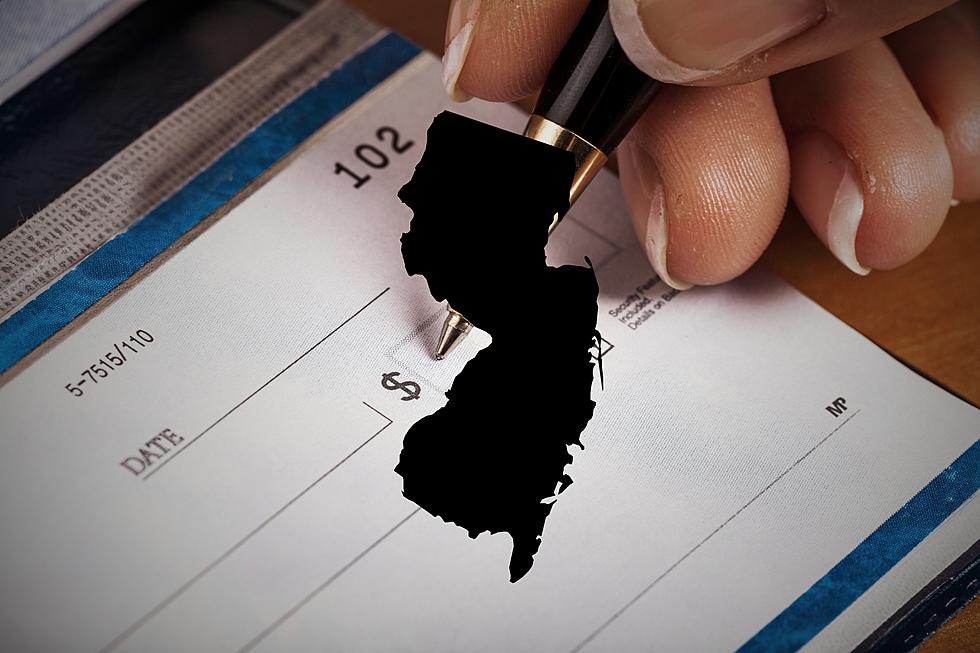
New NJ Voter Law May Shock You at Your Polling Place in November
A recent change in the law for mail-in voting could leave people planning to vote at their regular polling places fuming, while county clerks and boards of election across the state try to implement a new and expensive process they had hoped wouldn't start until next year.
When Gov. Phil Murphy signed the law in August it automatically made anyone who voted by mail in the November 2016 election a mail-in voter in the upcoming general election and all future elections.
Union County Clerk Joanne Rajoppi said since August her office has sent out close to 13,000 mail-in ballots, as well as opt-out notices for those who want to vote at the machines. Not all of the opt-outs were returned, but Rajoppi said that does not mean people wanted to vote by mail, and won't be disappointed at their polling places.
"When they do, most likely they will be told that they cannot vote on the machine because they are in the books as having received a ballot."
Rajoppi said it was also important to note that while those people who did not complete a mail-in ballot won't be able to vote in the machines, they will still be able to vote at their polling places. Rather than the machine, they will be given the option to fill out a provisional ballot.
Monmouth County Clerk Christine Hanlon said since the new law was enacted her office has been aggressive in getting the message out about the changes. Using various channels, including social media, press releases and others she said they are still getting countless questions from voters unsure of what to do.
"All of our election offices are preparing for that scenario where voters may be upset or angry if they show up at the polls and they can't vote at the machines," Hanlon said
Monmouth County officials have ordered considerably more provisional ballots than in years past, Hanlon said. The provisional ballots are similar to the mail-in ballots, requiring voters to fill in bubbles next to their candidates of choice, or writing in a candidate if they want.
As with any change Rajoppi said for the most part people are understanding when they call with questions, but that there have been some "irate" people as well. She said when they ask why they are doing this she just tells them she is following the law.
"The clerks felt that it was not going to be in place until next year's primaries, so everyone was caught short, none of us have the money in our budget in order to effect this law," she said. "Most of us have a small election staff. I know I took many people out of my other areas and have put them into elections. They work overtime every single day and they work on Saturdays and it appears they're going to be working on Sundays."
The goal of the legislation was in part to boost participation in voting, and Rajoppi said she has seen an uptick in voters. In the 2016 election she said she sent out around 13,000 applications to vote by mail. That number has increased to around 22,000 this time around. Whether all those people will vote by mail remains to be seen, she said.
Whether these people vote by mail or fill out a provisional ballot their votes will affect how election results are tallied as well. In addition to changing who votes by mail, the new law also changed when those mail-in votes have to be submitted. In the past these ballots needed to be at the Board of Elections by the time the polls closed on Election Day. The new law allows the ballots to be postmarked by Election Day and at the Board of Elections within 48 hours.
The potential for thousands of provisional ballots being counted also means that the closer races will likely not be decided until well after the polls close. Because of the provisional ballots and the mail-in ballots some races could take a week or a week and a half before all the votes are counted, Hanlon said. Provisional ballots are only counted after they are certified that the people submitting the ballots have not voted by mail before going to the polling places.
"Especially in Monmouth County where we have small towns that could come down to one vote, two votes, or your school board elections that could come down to one or two votes, I anticipate that we will not have those election results," she said. "We're working to try to educate the public that we may not have election results on election night depending on how many paper ballots are out there."
Hanlon said anyone with questions about the mail-in voting process has until 3 p.m. on the day before Election Day to resolve any potential issues, including lost or damaged ballots. In her county people can go to the clerk's office in Freehold and vote in person if their mail-in ballot is lost or damaged.
"There are ways to resolve these issues, but don't wait until the last minute to resolve, it," she said.
Jesse Berns, Executive Director of the League of Women Voters New Jersey, said even before the changes, voting by mail was "one of the most confusing processes, and one of the places we do get the most questions." The changes, she said, only added to that confusion for voters.
Berns said another point of frustration for voters is that some organizations have jumped on the change in the law and are sending people applications for mail-in ballots already filled out that they can send into their local board of elections.
"They're suspicious of these applications or these groups that are doing it and they're not comfortable about their personal information already being filled out," she said.
The same forms are available on the League's website, as well as on state and county government websites for people who prefer to not have their personal information already filled in.
"I think that the legislation itself is going to be very positive," Berns said. "It's going to increase turnout and making it easier for voters to participate in elections is always a good thing."
The deadline to register to vote is October 16. The New Jersey Department of State has a link to all the county boards of elections voter registration forms. Residents can also check whether they are already registered to vote, as well as where their polling place is on the website as well.
The upcoming midterm election will decide which party will hold control of the Senate and House of Representatives. In New Jersey, U.S. Sen. Bob Menendez is facing a challenge from Republican Candidate Bob Hugin, while several hotly contested seats in Congress are also up for grabs in November.
More From Cat Country 107.3










